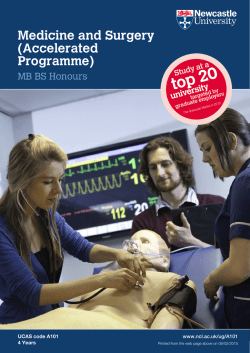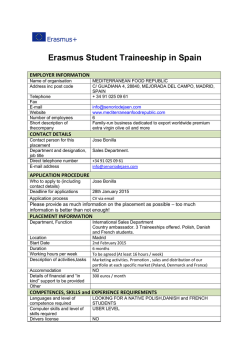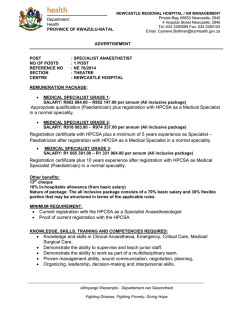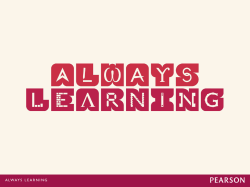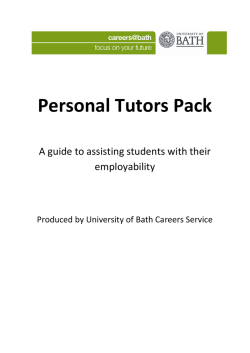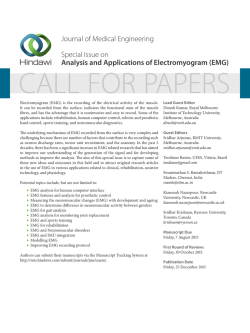
Business Management
Business Management BA Honours UCAS code N200 3 or 4 Years www.ncl.ac.uk/ug/N200 Printed from the web page above on 06/02/2015 Business Management BA Honours UCAS code N200 3 or 4 Years Through this professionally accredited degree you develop a strong understanding of the strategic and operational context of businesses, alongside knowledge of management topics including: • • • organisational behaviour human resource management finance and accounting • • Work placement / opportunities abroad You can choose to spend a year between your second and third years in a work placement in the UK or Europe, or studying at one of our partner universities abroad. Study at one of our partner universities in Europe • • • • • • • This builds your business awareness and helps you develop personal and professional skills required to become highly employable in a range of business environments. Through the Erasmus exchange scheme We currently have partners in Denmark, Finland, France, Holland, Norway, Spain and Sweden You will be eligible for the award of Business Management with European Placement BA Honours Take a work placement in a UK or European business Your knowledge is contextualised, and your employability enhanced, through our strong emphasis on practical, real-world business experience via: the use of case study-led teaching work experience opportunities with globally recognised companies, like IBM, Disney and Siemens Major firms and professional bodies sponsor awards for our outstanding students each year, to commend their dedication We regularly welcome guest speakers from industry • Gain invaluable business experience on a work placement in the UK or Europe We have recently placed students in companies including: Heinz; IBM; Nestlé; Nissan; Disney; L’Oréal; Reuters, and Xerox Receive lots of support from the Business School's dedicated Placement Officer and the University's Careers Service to find a placement that matches your skills and interests Alternatively, you can spend the year combining work and study. Find out more about work placements and study abroad opportunities on the Business School's website. Skills development Quality and ranking We rank in the top 20 UK universities for Business Studies in The Times/Sunday Times University Guide 2015 and The Complete University Guide 2015. Professional accreditation / industry links Professional accreditation • • This degree is professionally accredited by the Chartered Management Institute (CMI) As a graduate, you will benefit from guaranteed membership of the Institute on successful completion of your degree Industry links • • Newcastle University Business School has excellent links with industry and professional bodies, providing you with exposure to future employers We have a wide range of national and international contacts who provide work placement opportunities for our students (see below) We place a strong emphasis on helping you develop practical skills for your future career. You will be prepared you for a wide range of management careers in sectors which might include consultancy, media, manufacturing, retail, public services, finance or human resources. Practical business skills • • Case-study lead teaching helps you understand how real businesses apply knowledge and expertise to tackle real-world challenges You have the opportunity to put your learning into practice and gain a wealth of business experience through a work placement Research skills • • • Complete a dissertation exploring a business-related issue that interests you, or Undertake a consultancy project where you work with a business client, researching their organisation and presenting recommendations to improve their business Both develop your skills in research methodology and presentation, as well as delivering in-depth knowledge of a particular area of business Take a virtual tour at www.ncl.ac.uk/tour 2 Other skills Find out more Throughout your degree, you will also develop skills in areas such as: • • • • • • • • teamworking and leadership negotiation entrepreneurship ethics strategic management numeracy and IT skills Facilities and support This degree is run by Newcastle University Business School, based in our state-of-the-art building within Newcastle's emerging business district. Defence Technical Undergraduate Scheme (DTUS) This degree is approved by the Defence Technical Undergraduate Scheme (DTUS) for entry to all technical corps. • Facilities • • • • • 120 PCs across three hi-tech computer clusters Wi-Fi connectivity throughout our building Social spaces for learning and relaxation Bookable meeting rooms Take a virtual tour of our building Teaching and assessment methods may vary from module to module. More information about each module can be found in the Modules section Visit our Teaching and Learning pages to read about the outstanding learning experience available to all students at Newcastle University • This is a Ministry of Defence sponsorship programme for students who wish to join the Royal Navy, British Army, RAF, or Defence Engineering and Science Group (DESG) as technical officers after graduation Newcastle is one of only 10 UK universities taking part in DTUS Find out more on the Armed Forces page on our website. Careers support • • • • • • Specialist careers and business start-up support from the University's award-winning Careers Service Career management sessions with our dedicated Business School Careers Adviser Annual Career Development Week, to help you improve your employability skills and meet potential employers Work experience opportunities while studying with us Business School summer internship scheme Managerial and entrepreneurial skills development – we are one of only 140 business schools worldwide to receive accreditation from the EQUIS scheme for this Support • • • Personal tutor throughout your degree – an academic member of staff who can help with academic and personal issues Peer mentor in your first year – a fellow student who can help you settle in and answer any questions you have Have your say via our Board of Students The Armstrong Building and Student Forum. Teaching and assessment Teaching methods • Each week, you will have two lectures per module, or one lecture and one seminar per module Assessment methods • • • • • • • Written examinations Essays Project work Portfolios of practical work Oral presentations Computer-based multiple-choice questions Dissertation or individual reflective report Take a virtual tour at www.ncl.ac.uk/tour 3 Modules Stage 3 Our degrees are divided into Stages. Each Stage lasts for an academic year and you need to complete modules totalling 120 credits by the end of each Stage. Compulsory modules You will take 80 credits from the following compulsory modules: BUS3053 Management Consultancy Project OR BUS3051 Management Studies Dissertation AND BUS3054 Strategy, Organisations and Society BUS3035 Contemporary Issues in International Business Management Optional modules You will take 40 credits of optional modules from the following list: BUS3004 Electronic Business BUS3033 Critical Organisation Studies AND BUS3019 The Representation of Management and Organisation in Popular Culture BUS3024 Critical Perspectives on Human Resource Management in Britain AND BUS3021 International Human Resource Management BUS3027 Innovation and Creativity BUS3047 Management in Practice (with Business Game) BUS3049 Understanding Enterprise You also have the flexibility (with approval of the DPD) to replace one of the above optional modules with a module from the following list: NCL3007 Career Development for Final-Year Students BUS3056 ERASMUS Study/Work Placement Report SPA2001 Business Spanish 2 Please be aware that programme modules do change and therefore may differ for your year of entry. Stage 1 Compulsory modules ACC1003 Introduction to Accounting and Finance (for Business School Students) BUS1001 Introduction to Management and Organisation BUS1011 Case Studies in Business Management MAS1403 Quantitative Methods for Business Management BUS1002 Global Business Environment BUS1004 Business Emergence and Growth Stage 2 Compulsory modules BUS2029 Operations Strategy and Management BUS2010 Managing People in Organisations BUS2018 Research Skills for Business Research and Consultancy BUS2019 Understanding Work and Organisations Optional modules You choose 40 credits from the following list: BUS2005 Business Game/Case Studies in Management BUS2011 Business Enterprise BUS2017 Introduction to Innovation and Technology Management BUS2030 Current Affairs, News and Organisations BUS2031 Managing Change ACC2000 Interpreting Company Accounts With the approval of the DPD, you may select ONE of the modules below INSTEAD of one of the modules above: NCL2007 Career Development for Second-Year Students SPA1001 Business Spanish Entry Requirements All candidates are considered on an individual basis. If your qualifications are not listed here, please see our additional entry requirements web pages to find out which other qualifications are considered. Additional Information on GCSEs (or equivalent) Achievement of a minimum of five GCSE grades A*-C, or equivalent, is normally required. These must include Mathematics and English GCSE, or equivalent, at the specified grades. A Levels Work placement/study abroad (optional): You can spend the year between Stages 2 and 3 studying at one of our partner universities in Europe or on a 12-month work placement in a UK or European business. The Business School has a dedicated Placement Officer who can help you find a suitable work placement; you can also choose to receive e-mail alerts from the University’s Careers Service Vacancies Online service. We have recently placed students in companies including Heinz, IBM, Nestlé, Nissan, L’Oréal, Reuters and Xerox. AAB excluding General Studies. See guidance on Business School preferred subjects (PDF: 129KB). GCSE Mathematics and English (minimum grade B) required if not taken at A or AS level. Please see the Additional Information section on this page about further GCSE (or equivalent) requirements. Scottish Qualifications AAABB at Higher Grade. Mathematics and English required at grade 2 Standard Grade (or Intermediate 2 equivalent) if not offered at Higher Grade. Combinations of Highers and Advanced Highers accepted. Where a candidate bypasses the assessment for National 5 qualifications, a minimum of grade C in the Higher in Maths and English is required. Take a virtual tour at www.ncl.ac.uk/tour 4 Please see the Additional Information section on this page about further GCSE (or equivalent) requirements. English Language Requirements International Baccalaureate For this degree you will need a minimum score of IELTS 6.5 or equivalent. 35 points. Standard Level Mathematics or Mathematical Studies required at grade 5 if not offered at Higher Level. Visit our International Students web pages to find out more about our English language admission requirements. Please see the Additional Information section on this page about further GCSE (or equivalent) requirements. If you need to improve your English language skills before you enter this course, our partner, INTO Newcastle, offers a range of English language courses. These intensive and flexible courses are designed to improve your English ability for entry to this degree. Irish Leaving Certificate A1A1A1B1B at Higher Level, normally to include Mathematics. Find out more: Please see the Additional Information section on this page about further GCSE (or equivalent) requirements. Access Qualifications 45 Level 3 credits at Distinction to include at least 6 credits in maths or quantitative methods. Please see the Additional Information section on this page about further GCSE (or equivalent) requirements. BTEC Level 3 Extended Diploma (formerly BTEC National Diploma) Overall DDD. Business-related subjects preferred. GCSE Mathematics and English (minimum grade B) required. • • English for University Study Pre-sessional English International Foundation Programmes If you are an international student and you do not meet the academic and English language requirements specified above, you should consider a preparation course at INTO Newcastle University, which will help to prepare you for study on this degree course. INTO Newcastle University is based on the University campus and offers a range of courses including the International Foundation in Business and Management. Please see the Additional Information section on this page about further GCSE (or equivalent) requirements. Undergraduate Admissions Policy • Newcastle University Undergraduate Admissions Policy 2015 Entry (PDF: 109 KB) Cambridge Pre-U See further Newcastle University Admissions Policies. D3,D3,M2 in Principal Subjects. GCSE Mathematics and English (minimum grade B) required if not taken at a higher level. Business Management careers Please see the Additional Information section on this page about further GCSE (or equivalent) requirements. PARTNERS - A Levels BBB excluding General Studies. GCSE Mathematics and English (minimum grade B) required if not taken at A or AS level. The PARTNERS Programme is Newcastle University’s supported entry route for students from identified schools and colleges. Find out more about the PARTNERS Programme. Please see the Additional Information section on this page about further GCSE (or equivalent) requirements. PARTNERS - BTEC Level 3 Extended Diploma (formerly BTEC National Diploma) Overall DDM. Business-related subjects preferred. GCSE Mathematics and English (minimum grade B) required. The PARTNERS Programme is Newcastle University’s supported entry route for students from identified schools and colleges. Find out more about the PARTNERS Programme. Please see the Additional Information section on this page about further GCSE (or equivalent) requirements. At Newcastle University Business School, we provide an extensive range of opportunities to all students to enable you to develop personal, employability and enterprise skills and to give you a real edge in the employment market after you graduate. In 2010/11, 88% of UK and EU Newcastle University Business School graduates who responded to our survey were in employment or further study within six months of graduating. Feedback from employers on the quality of our graduates continues to be excellent. The success of our graduates is reflected in the globally recognised list of companies within which a number have found employment, including: • • • • • • • • • • Ipsos Mori L’Oréal Accenture Media Comm Microsoft Sainsbury’s Von Essen Hotels Shell Nestlé HSBC International Business School graduates go into a wide variety of careers, including financial services, accountancy, management consultancy, business development, marketing, retail management, and human resource management. Take a virtual tour at www.ncl.ac.uk/tour 5 Find out more about the career options for Business Management and Marketing from Prospects: The UK's Official Careers Website. Careers and employability at Newcastle Newcastle University consistently has one of the best records for graduate employment in the UK. • • 93.7% of our 2013 UK/EU graduates progressed to employment or further study within six months of graduating. More than three quarters (77%) of our graduates who entered employment achieved a graduate-level position. We provide an extensive range of opportunities to all students through an initiative called ncl+ which enables you to develop personal, employability and enterprise skills and to give you the edge in the employment market after you graduate. Our award-winning Careers Service is one of the largest and best in the country, and we have strong links with employers. The Business School runs a Career Development Week for all Business School students to give you an insight into possible career options. We also have a dedicated Placement Officer who can help you find a work placement in your area of interest. For more information about the careers support available for Business School students, visit the Business School website. Our award-winning University Careers Service has a dedicated adviser with responsibility for students in the Business School: • • receive bespoke careers advice and guidance attend career management sessions at each Stage Tuition Fees (International students) 2015 entry: £12,680 per year 2014 entry: £12,075 per year You will be charged tuition fees for each year of your degree programme (unless you are on a shorter exchange programme). If you spend a year on placement or studying abroad as part of your degree you may pay a reduced fee for that year. Please note that the tuition fee amount you will pay may increase slightly year on year as a result of inflation. See more information relating to all aspects of student finance at Newcastle University. Scholarships and Financial Support (UK and EU students) You may be eligible for one of a range of Newcastle University Scholarships in addition to government grants and support. Newcastle University Scholarships Non-repayable grants Scholarships and Financial Support (International students) You may be eligible for an International Undergraduate Merit Scholarship (IUMS) or an International Family Discount (IFD). Finance Tuition Fees (UK and EU students) 2015 entry: £9,000 per year On this degree programme, you can choose to spend a year on placement or studying abroad. If you choose to take this option, the fee will be £1,000 for that year (you will receive a fee discount of £8,000). See more information on all aspects of student finance relating to Newcastle University. Please note that the tuition fee amount you will pay may increase slightly year on year in line with inflation and subject to government regulations. There are many places to grab a coffee on campus. Take a virtual tour at www.ncl.ac.uk/tour 6
© Copyright 2026
